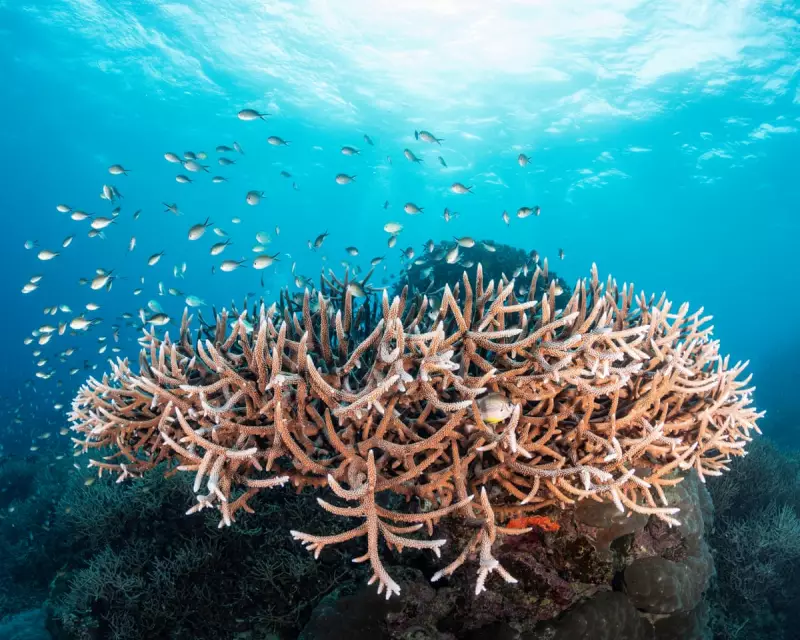
The Great Barrier Reef, one of Earth's most magnificent natural wonders, is experiencing its most devastating coral bleaching event ever recorded, according to alarming new findings. Scientists warn that this ecological catastrophe could push the reef beyond the point of recovery.
The Bleaching Crisis Deepens
Aerial surveys and underwater observations conducted throughout 2025 have revealed catastrophic damage across the entire reef system. Marine biologists report that over 90% of individual reefs are showing signs of severe bleaching, a condition where corals expel the colourful algae living in their tissues due to stress from elevated water temperatures.
"What we're witnessing is unprecedented in both scale and severity," explained Dr. Sarah Chen, lead marine researcher at the Australian Institute of Marine Science. "The reef is essentially fighting for its life against warming oceans driven by climate change."
Why This Bleaching Event Differs
Unlike previous bleaching events that primarily affected specific sections, the current crisis spans the entire 2,300-kilometre ecosystem. Several critical factors make this situation particularly dire:
- Back-to-back bleaching events have denied corals the recovery time needed between heatwaves
- Record-breaking ocean temperatures have persisted for longer durations than ever measured
- Multiple stress factors including pollution and coral-eating starfish outbreaks compound the damage
The Human and Economic Impact
The Great Barrier Reef supports approximately 64,000 jobs and contributes an estimated £4.5 billion annually to Australia's economy through tourism. The accelerating decline threatens not only marine biodiversity but also the livelihoods of thousands who depend on reef-related industries.
Local tourism operators report growing concerns from visitors who are reconsidering trips after seeing images of the stark white corals. "We're having to educate people that there are still beautiful, healthy sections to see, but the overall trend is deeply worrying," shared James Wilson, a dive tour operator from Cairns.
Is Recovery Still Possible?
While corals can recover from bleaching if conditions improve quickly, scientists note that the frequency of mass bleaching events is outpacing natural recovery cycles. The interval between severe events has shrunk from 27 years in the 1980s to just six years currently.
"The window for meaningful action is closing rapidly," warned Professor Michael Rodriguez, climate scientist at the University of Queensland. "Without immediate, substantial reductions in global carbon emissions, we risk losing one of the planet's most biodiverse ecosystems within our lifetimes."
Global Implications
The plight of the Great Barrier Reef serves as a stark warning for coral reefs worldwide. As ocean temperatures continue to rise due to climate change, similar devastation is expected across tropical marine ecosystems from the Caribbean to Southeast Asia.
Conservation groups and researchers are calling for emergency interventions, including enhanced local protection measures and accelerated research into heat-resistant coral species. However, all agree that only addressing the root cause of global heating will provide a long-term solution.
The unfolding tragedy at the Great Barrier Reef stands as a powerful reminder that the consequences of climate change are not distant future threats, but present-day realities affecting our planet's most precious natural treasures.





